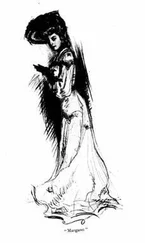James Cabell - The Certain Hour. Dizain des Poëtes
Здесь есть возможность читать онлайн «James Cabell - The Certain Hour. Dizain des Poëtes» весь текст электронной книги совершенно бесплатно (целиком полную версию без сокращений). В некоторых случаях можно слушать аудио, скачать через торрент в формате fb2 и присутствует краткое содержание. Жанр: Современная проза, на английском языке. Описание произведения, (предисловие) а так же отзывы посетителей доступны на портале библиотеки ЛибКат.
- Название:The Certain Hour. Dizain des Poëtes
- Автор:
- Жанр:
- Год:неизвестен
- ISBN:нет данных
- Рейтинг книги:4 / 5. Голосов: 1
-
Избранное:Добавить в избранное
- Отзывы:
-
Ваша оценка:
- 80
- 1
- 2
- 3
- 4
- 5
The Certain Hour. Dizain des Poëtes: краткое содержание, описание и аннотация
Предлагаем к чтению аннотацию, описание, краткое содержание или предисловие (зависит от того, что написал сам автор книги «The Certain Hour. Dizain des Poëtes»). Если вы не нашли необходимую информацию о книге — напишите в комментариях, мы постараемся отыскать её.
The Certain Hour. Dizain des Poëtes — читать онлайн бесплатно полную книгу (весь текст) целиком
Ниже представлен текст книги, разбитый по страницам. Система сохранения места последней прочитанной страницы, позволяет с удобством читать онлайн бесплатно книгу «The Certain Hour. Dizain des Poëtes», без необходимости каждый раз заново искать на чём Вы остановились. Поставьте закладку, и сможете в любой момент перейти на страницу, на которой закончили чтение.
Интервал:
Закладка:
And this is as it should be. Tout passe.-L'art robust seul a l'éternité , precisely as Gautier points out, with bracing common-sense; and it is excellent thus to comprehend that to-day, as always, only through exercise of the auctorial virtues of distinction and clarity, of beauty and symmetry, of tenderness and truth and urbanity, may a man in reason attempt to insure his books against oblivion's voracity.
Yet the desire to write perfectly of beautiful happenings is, as the saying runs, old as the hills-and as immortal. Questionless, there was many a serviceable brick wasted in Nineveh because finicky persons must needs be deleting here and there a phrase in favor of its cuneatic synonym; and it is not improbable that when the outworn sun expires in clinkers its final ray will gild such zealots tinkering with their "style." This, then, is the conclusion of the whole matter. Some few there must be in every age and every land of whom life claims nothing very insistently save that they write perfectly of beautiful happenings. And even we average-novel-readers know it is such folk who are to-day making in America that portion of our literature which may hope for permanency.
Dumbarton Grange
1914-1916
BELHS CAVALIERS
"For this RAIMBAUT DE VAQUIERAS lived at a time when prolonged habits of extra-mundane contemplation, combined with the decay of real knowledge, were apt to volatilize the thoughts and aspirations of the best and wisest into dreamy unrealities, and to lend a false air of mysticism to love… It is as if the intellect and the will had become used to moving paralytically among visions, dreams, and mystic terrors, weighed down with torpor."
Fair friend, since that hour I took leave of thee
I have not slept nor stirred from off my knee,
But prayed alway to God, S. Mary's Son,
To give me back my true companion;
And soon it will be Dawn.
Fair friend, at parting, thy behest to me
Was that all sloth I should eschew and flee,
And keep good Watch until the Night was done:
Now must my Song and Service pass for none?
For soon it will be Dawn.
You may read elsewhere of the long feud that was between Guillaume de Baux, afterward Prince of Orange, and his kinsman Raimbaut de Vaquieras. They were not reconciled until their youth was dead. Then, when Messire Raimbaut returned from battling against the Turks and the Bulgarians, in the 1,210th year from man's salvation, the Archbishop of Rheims made peace between the two cousins; and, attended by Makrisi, a converted Saracen who had followed the knight's fortunes for well nigh a quarter of a century, the Sire de Vaquieras rode homeward.
Many slain men were scattered along the highway when he came again into Venaissin, in April, after an absence of thirty years. The crows whom his passing disturbed were too sluggish for long flights and many of them did not heed him at all. Guillaume de Baux was now undisputed master of these parts, although, as this host of mute, hacked and partially devoured witnesses attested, the contest had been dubious for a while: but now Lovain of the Great-Tooth, Prince Guillaume's last competitor, was captured; the forces of Lovain were scattered; and of Lovain's lieutenants only Mahi de Vernoil was unsubdued.
Prince Guillaume laughed a little when he told his kinsman of the posture of affairs, as more loudly did Guillaume's gross son, Sire Philibert. But Madona Biatritz did not laugh. She was the widow of Guillaume's dead brother-Prince Conrat, whom Guillaume succeeded-and it was in her honor that Raimbaut had made those songs which won him eminence as a practitioner of the Gay Science.
Biatritz said, "It is a long while since we two met."
He that had been her lover all his life said, "Yes."
She was no longer the most beautiful of women, no longer his be-hymned Belhs Cavaliers-you may read elsewhere how he came to call her that in all his canzons-but only a fine and gracious stranger. It was uniformly gray, that soft and plentiful hair, where once such gold had flamed as dizzied him to think of even now; there was no crimson in these thinner lips; and candor would have found her eyes less wonderful than those Raimbaut had dreamed of very often among an alien and hostile people. But he lamented nothing, and to him she was as ever Heaven's most splendid miracle.
"Yes," said this old Raimbaut,-"and even to-day we have not reclaimed the Sepulcher as yet. Oh, I doubt if we shall ever win it, now that your brother and my most dear lord is dead." Both thought a while of Boniface de Montferrat, their playmate once, who yesterday was King of Thessalonica and now was so much Macedonian dust.
She said: "This week the Prince sent envoys to my nephew… And so you have come home again-" Color had surged into her time-worn face, and as she thought of things done long ago this woman's eyes were like the eyes of his young Biatritz. She said: "You never married?"
He answered: "No, I have left love alone. For Love prefers to take rather than to give; against a single happy hour he balances a hundred miseries, and he appraises one pleasure to be worth a thousand pangs. Pardieu, let this immortal usurer contrive as may seem well to him, for I desire no more of his bounty or of his penalties."
"No, we wish earnestly for nothing, either good or bad," said Dona Biatritz-"we who have done with loving."
They sat in silence, musing over ancient happenings, and not looking at each other, until the Prince came with his guests, who seemed to laugh too heartily.
Guillaume's frail arm was about his kinsman, and Guillaume chuckled over jests and by-words that had been between the cousins as children. Raimbaut found them no food for laughter now. Guillaume told all of Raimbaut's oath of fealty, and of how these two were friends and their unnatural feud was forgotten. "For we grow old,-eh, maker of songs?" he said; "and it is time we made our peace with Heaven, since we are not long for this world."
"Yes," said the knight; "oh yes, we both grow old." He thought of another April evening, so long ago, when this Guillaume de Baux had stabbed him in a hedged field near Calais, and had left him under a hawthorn bush for dead; and Raimbaut wondered that there was no anger in his heart. "We are friends now," he said. Biatritz, whom these two had loved, and whose vanished beauty had been the spur of their long enmity, sat close to them, and hardly seemed to listen.
Thus the evening passed and every one was merry, because the Prince had overcome Lovain of the Great-Tooth, and was to punish the upstart on the morrow. But Raimbaut de Vaquieras, a spent fellow, a derelict, barren of aim now that the Holy Wars were over, sat in this unfamiliar place-where when he was young he had laughed as a cock crows!-and thought how at the last he had crept home to die as a dependent on his cousin's bounty.
Thus the evening passed, and at its end Makrisi followed the troubadour to his regranted fief of Vaquieras. This was a chill and brilliant night, swayed by a frozen moon so powerful that no stars showed in the unclouded heavens, and everywhere the bogs were curdled with thin ice. An obdurate wind swept like a knife-blade across a world which even in its spring seemed very old.
"This night is bleak and evil," Makrisi said. He rode a coffin's length behind his master. "It is like Prince Guillaume, I think. What man will sorrow when dawn comes?"
Raimbaut de Vaquieras replied: "Always dawn comes at last, Makrisi."
"It comes the more quickly, messire, when it is prompted."
The troubadour only smiled at words which seemed so meaningless. He did not smile when later in the night Makrisi brought Mahi de Vernoil, disguised as a mendicant friar. This outlaw pleaded with Sire Raimbaut to head the tatters of Lovain's army, and showed Raimbaut how easy it would be to wrest Venaissin from Prince Guillaume. "We cannot save Lovain," de Vemoil said, "for Guillaume has him fast. But Venaissin is very proud of you, my tres beau sire. Ho, maker of world-famous songs! stout champion of the faith! my men and I will now make you Prince of Orange in place of the fiend who rules us. You may then at your convenience wed Madona Biatritz, that most amiable lady whom you have loved so long. And by the Cross! you may do this before the week is out."
Читать дальшеИнтервал:
Закладка:
Похожие книги на «The Certain Hour. Dizain des Poëtes»
Представляем Вашему вниманию похожие книги на «The Certain Hour. Dizain des Poëtes» списком для выбора. Мы отобрали схожую по названию и смыслу литературу в надежде предоставить читателям больше вариантов отыскать новые, интересные, ещё непрочитанные произведения.
Обсуждение, отзывы о книге «The Certain Hour. Dizain des Poëtes» и просто собственные мнения читателей. Оставьте ваши комментарии, напишите, что Вы думаете о произведении, его смысле или главных героях. Укажите что конкретно понравилось, а что нет, и почему Вы так считаете.



